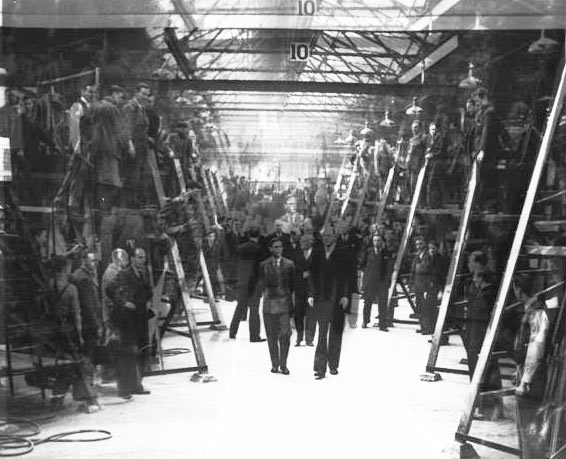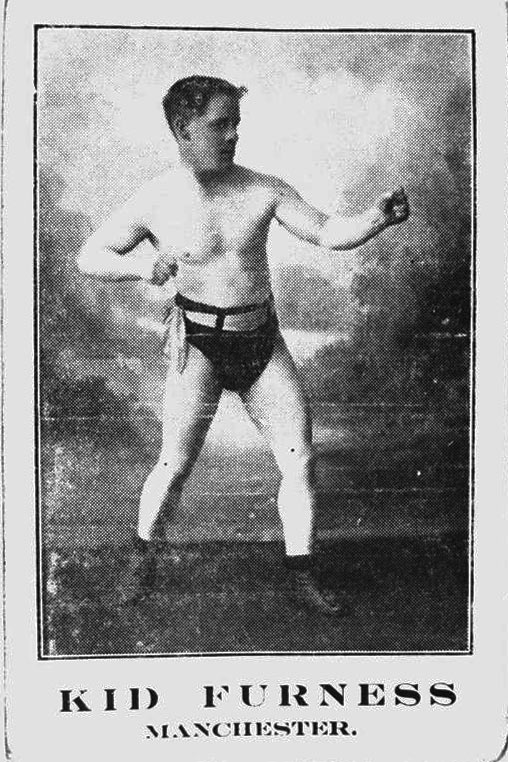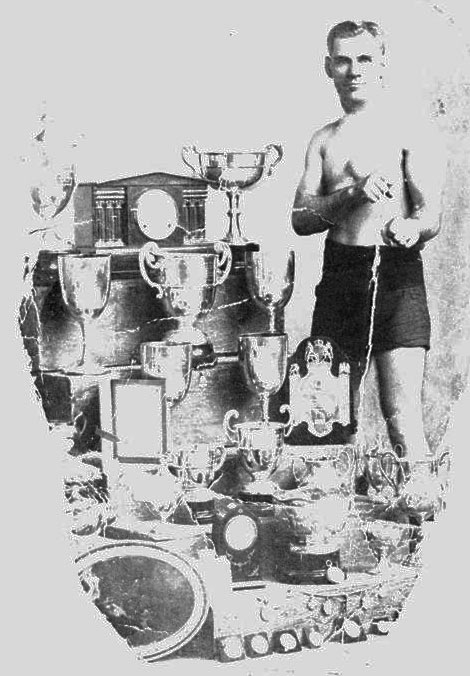Swipe to read
Aaron explains how living with his Aunt Dora brought about his first connection to his Jewish identity.
Read Transcript
“Because then I lived in Gorton and I never had any contact with the Jewish religion until my mother died and then it was through them, my father took me away you see, to mix up with the Jewish people. That was in 1914 … then I would only be about 11 or 12 then and I started going to cheder and mixing up and I used to go to shul … I wasn’t circumcised until I went to live with Aarons. I wasn’t circumcised until I was 11. When I went to live with the Aarons, they wanted to make me a Jew … It was done in the front room at 17 Denton Street by the surgeon … It was done in the proper manner. I think he was a rabbi that did it …
So, did you have to learn about the religion then before you became circumcised?
No, that was done right away … Within two or three weeks of going to Aarons. I suppose they thought, well, if he’s come here, he can be a proper Jew, instead of being half and half … I wasn’t asked at all, I was just told I was going to have an operation and I can remember going on the table, I can remember when he said, ‘Count twelve’. I went so far and I must have been going off and I remember I woke up in bed.”
Sam, like his father before him, wanted to fight for his country. He enlisted for the army during World War One. Here he explains how this decision inspired his boxing career.
Read Transcript
“So, I went to Bury to Palatine Buildings, and I said, ‘I want to join the navy.’ ‘Oh,’ he says, ‘this is the army not the navy. If you want to join the navy, go up Deansgate and see the naval recruiting office.’ So, I said, ‘Well let me join the army,’ and he said, ‘Spell murmur.’ So, I says, ‘M.U.R.M.U.R.’ and he said, ‘How old are you?’ I said, ‘Eighteen.’ He said, ‘Go home and get your brother and come back again.’ I was only sixteen you know. So, I said to this chap I was with, ‘Let’s go to Ashton-under-Lyne’… we walked to Ashton-under-Lyne and got there about 2 o’clock in the afternoon. And we reported to the Guard and said, ‘We’ve come to join the army’… I was in the army in no time. So, I think we got two bob and a ticket to go to Preston … I went on parade the next day in army uniform … A chap stood on my slipper. So, the instructor said, ‘Come out Aaron, come out and get the gloves on.’ And from then on, I became an army champion. I gave him such a good hiding I was put in the boxing team next time … I’ve boxed all over for the British Army, and I boxed at Preston where I won a championship there and I went to Tidworth and from Tidworth I went to Germany. And did very well at boxing in Germany for the army, for the Regiment and then I went over to Constantinople, and I did very well for the boxing there and I won the Army and Navy Championships over there. Then I came home and then went back to Malta and was boxing there, I was always in the boxing ring. I was good in those days. And then when I came home, the optician’s business and the boxing didn’t mix.”
Listen to Sam explain how boxing was a lucrative profession in the difficult job market of 1920s Britain.
Read Transcript
“I was boxing when I was out of work because work was very hard to get you know … When I came out of the army, things was very tight then you see, I did my bit in the opticians business and then I went boxing. It was the start of the General Strike in 1926, I hadn’t got a real job the reason I started boxing. Because I hadn’t got a job and everybody was out of work … I had a manager, Harry ‘Kid’ Furness, and he used to get a request from various promoters … and he’d say, ‘Here you are, you’re boxing at Preston tonight, here’s your fare, put up a good show’, and I’d get paid about 30 bob. I was supposed to pay him a commission, but there was a decent chap was Furness and he never used to bother taking any commission off me, why I don’t know. Because I was in digs with a relation of his at the time and when he wanted anybody for a fight at short notice, he used to send me on … You see in those days we were out of work, you were fighting that often, you got no time to train. I was fighting nearly every night. I was paid 30 bob or 35 bob as well, it was good money in those days, 30 bob was a week’s wages … of course I used to spend it as I got it … I was born too soon, look at the money they’re getting now, I’d fight Cassius Clay for that.”
Sam’s sporting nickname clearly identified him as a Jewish boxer. Here he explains how his nickname came about.
Read Transcript
“I’d always be laughing. I’d always start laughing. I always used to have a smile, they used to call me the Smiling Hebrew … It stuck to me. Wherever I went, if I was fighting in Liverpool, Birmingham, anywhere they used to say, ‘Sam Aarons of Cheetham, The Smiling Hebrew.’ Always stuck to me that. It was Kid Furness who gave me that in the first place. Sam Aarons, The Smiling Hebrew, it stuck to me. Wherever I was fighting it stuck to me … Even when I was getting a damn good hiding I used to be laughing. For a few bob.”



